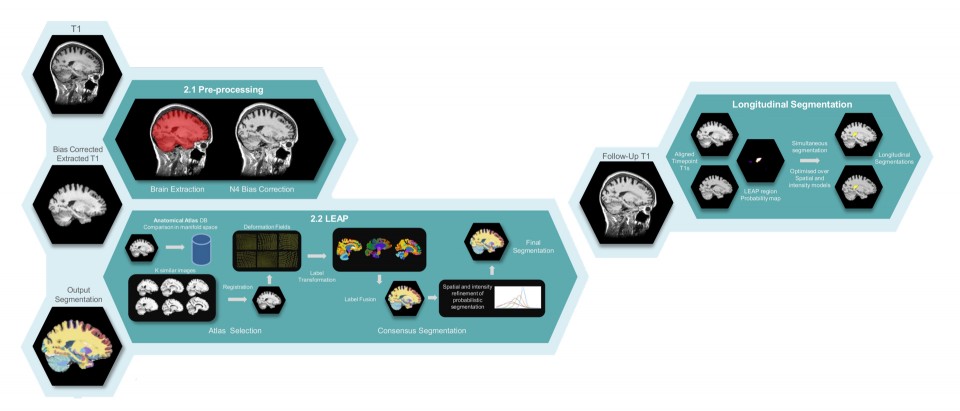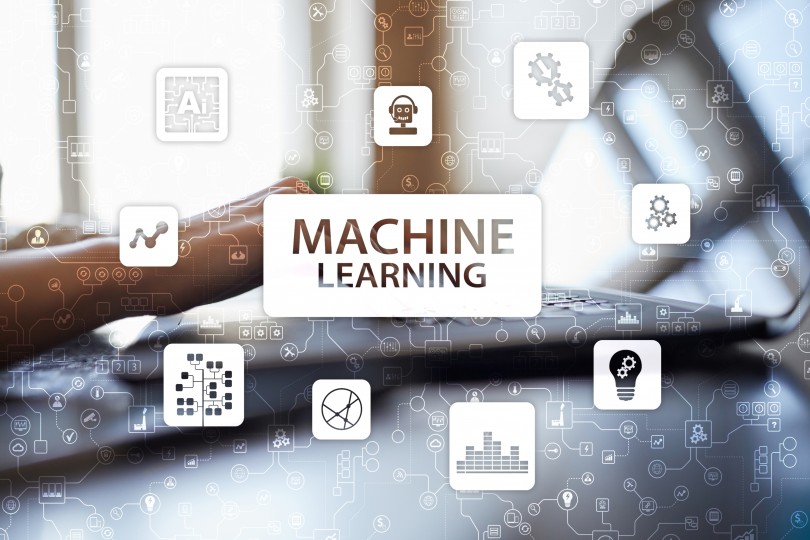Innovation & AI
Through the application of IXICO’s data science expertise, these measurements have the potential to increase success-rates of clinical trials, reduce the cost of running them as well as reducing the burden on trial participants.
Artificial Intelligence (AI)
AI technologies and approaches continue to develop at pace and have the potential to impact every stage of clinical development.
AI technologies and approaches are developing fast, and have the potential to impact every stage of clinical research and development.
While there are many definitions of AI, at IXICO machine learning and AI enable us to develop new analysis algorithms from ever-increasing datasets and apply these to respond to new challenges in CNS clinical research.
In neuroscience, AI has applications across the entire spectrum of understanding and treating neurodegenerative diseases – from selecting the most promising drug candidates in the early stages of research, to supporting clinical development programs with interpreting complex patient data, and even developing new models of care in the community.

How we’re harnessing machine learning
We have been harnessing machine learning and AI since we were founded in 2004. We have since developed AI technology to assess brain pathology including white matter lesions and – more recently – used data from wearable biosensors to accurately measure sleep patterns in Parkinson’s disease and Alzheimer’s disease patients.
Our unique approaches allow us to understand disease symptoms more directly compared to manual assessment or complex in-clinic technology. Combined with our data science expertise, these measurements have the potential to increase success rates of CNS clinical trials, reduce the cost of running them, and reduce the burden on trial participants and their carers by reducing the need for clinic visits.

AI for Imaging
Our proprietary LEAP algorithm harnesses the power of large datasets and computer-based learning to segment specific regions of the brain and accurately measure their volume. This provides a reliable method of measuring brain atrophy, which can indicate the progression of neurological disease.
AI for Biosensors
Compared to traditional, minute-based scoring of activity, our novel AI approach allows us to identify more subtle movement patterns from accelerometry by considering the full 3-axis, high-frequency data before and after the time period labelled.
AI for Disease Modelling
In collaboration with Imperial College London, we have developed technology to provide a subject-specific model for the estimated disease progression of an individual subject. This approach brings to life the hypothetical models proposed at population level for the trajectories observed for different biomarkers in a given CNS disease.
The Future of AI at IXICO
As well as imaging, we’re continuing to develop interpretive algorithms for new data types, including data gathered from wearable biosensors – a rapidly developing field. We are actively working on technology to expand on the clinical endpoints we can measure automatically from CNS clinical trial data.
Continually increasing the size of data we collect and harnessing advanced AI has the potential to help us achieve far greater efficiency in CNS trial service delivery. This will enable us to reliably automate processes such as image quality control, and help develop predictive tools that can deliver valuable insights on clinical trial performance to our customers.

Want to find out more about how we can support your clinical study?
Download our latest brochure, or get in touch with us directly by emailing info@ixico.com.
Download Brochure